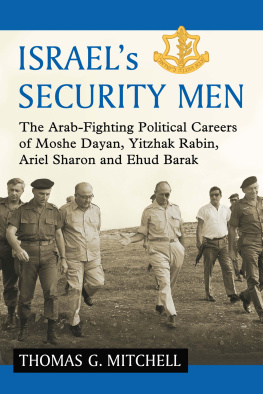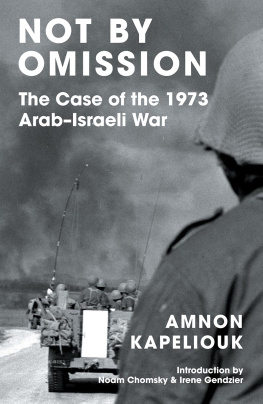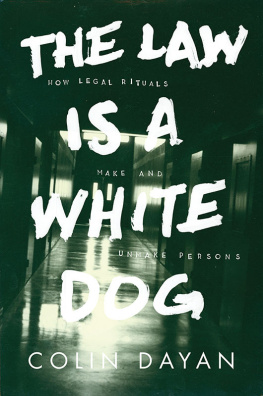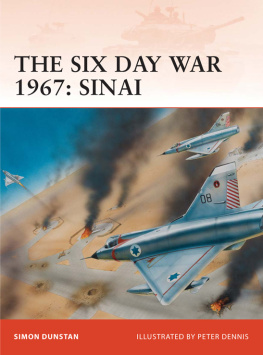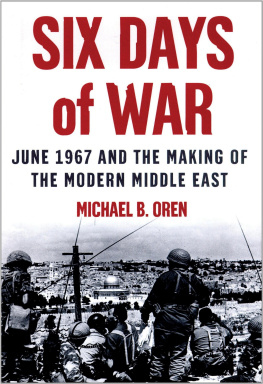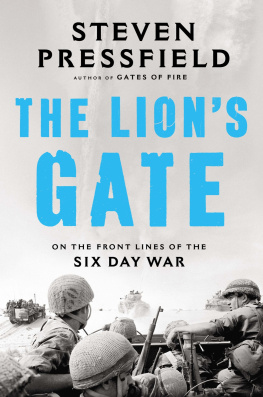The Week Before
First and foremost there was the loess, a yellowish-gray loam dust raised like a screen to separate all that was from all that was to be. The station wagon pulled up at the check post. I took my small bag and waited for the cloud of dust to recede. When it did, I faced my new home. It was Saturday morning, May 27, and all that was north had been hurriedly left behindParis, Rome, Athensthe cable home, the BEA flight to Lydda, my unit, empty Tel-Aviv, the road to Beer-Sheba, the road south, then west toward the Egyptian frontier; and now Shivta, division headquarters. Camouflaged vehicles merged into the hill slopes and my sandaled feet sank deep and comfortably in the powdery soil. Small yellow signs indicated directions and I found my way to the war room. The contrast between the word war room and its contents reminded me of everything our army stood for: barbed wire, a military policeman, three trucks supporting a tent. I was let in after a short discussion. A pretty blonde called Zipi offered me a cup of coffee. The helicopter pilot, Zeev, was lounging on a camp bed and a small transistor offered us the Hit Parade. Large wooden frames held colorful maps, the communication system was located on the left, and on one of the trucks a few officers were discussing defense plans, the last news bulletin, transportation problems, and the like. For the first few minutes the talk was utterly strange to me. Army jargon, abbreviations, initials, numbers, unfamiliar names, long-forgotten terms. Officers were all addressed by their first names, each had a revolver and a water bottle attached to his belt; they wore high boots and their faces were already tanned and covered with a thick layer of dust which during the weeks that followed seemed to become a part of everyones face.
The operations officer, Asher, unrolled the map. We were in Shivta, an archaeological site, facing the remains of the desert city of the Nabatteans. Surrounding the headquarters were our units tents. We were responsible at that point for the section of the Egyptian frontier from Gabel Keren in the north to Wadi Lotz in the south. This was an area of hills and dunes, surrounding and safeguarding the Abu-Ageila-Nitzama-Beer-Sheba road, a road which our Intelligence had informed us was to be used as a central approach line by the Egyptian forces for entrance into the Negev. By advancing along this road, Asher said, they will be in a position to isolate the lower Negev and join with the Jordanian forces from the Mount Hebron area. Large square letters were drawn in black pencil on the map: Phase A Defense. The border was marked in green, straight and definite, with a multitude of blue and red marks to indicate the different units. Behind these marks were people. Under cover of code numbers hid vehicles and arms. The tip of the stick, now drawing imaginary lines, suggested the enormous machine, motivated by the undebatable need to survive, which had been mobilized a few days earlier and was now being held there between the green line and our yellow reality, ready to meet a threat or to present one.
Why talk so much? Asher said. Lets go and see them. It was midday. The sun in its zenith was drying the few scattered gray desert shrubs, drying the skin, drying the drops of sweat, enervating the will power. I changed my sandals for boots and got myself a water bottle and an army writing pad. My official assignment was correspondent for the military spokesman, which meant that I would be attached to the division throughout the period of mobilization. I was to send to the correspondents pool daily reports which were to be distributed for publication in the various newspapers in Israel and abroad. For the time being this was my work, but there was no question in my mind that in case of war I would be first a soldier, an officer, able and willing to fulfill other duties. Equipped with a wide-brimmed khaki hat, I joined Asher on the jeep and we were on our way.
How long it takes us to gather the component parts of our memorythe problems, self-appraisals, the self-analysis, our little daily dilemmas, petty quests for comfort. And how quickly they all can disappear. We were driving fast along the road heading west, toward the green line on the map, and with each mile I shed another layer. Not a process of pensive days and dream-filled nights but a short jeep drive, the hair already uncombable, face burning, muscles adjusting to the hard seat and the bumpy road, hat fighting the wind, sunglasses fighting the reflected glare from the dunes. Between Shivta and the armored brigade camp, London was dumped; Paris was lost from there to Ktziot; Pucci and Trigre were forgotten with the first grease marks on my khaki trousers, my car with the sight of heavy bulldozers blocking the road, while Rome and Athens disappeared among the rocky hills of Nitzana as we approached Beerotaim, headquarters of the battalion which was sitting on the border.
Beerotaim, situated on the summit of a hill, is a spot of green grass and a few wooden huts. All that was behind, stretching eastthe dunes, the craters, the Dead Sea, and the valley halved by the Jordanian frontierwas ours. All that was ahead and westmore dunes, chalk hills, the Sinai Desert to the Canalwas theirs; here, near Beerotaim, the asphalt road ended for us like an exclamation mark crossing the border to the other side. We were offered lunch in the battalions dining room, cooked food, in spite of it being Saturday, by special permission of the chief rabbi. The battalion commander took me to see his men. And one needed a guide to discern them. Never before had Israeli units been so well fortified, entrenched, camouflaged, and hidden; the terrain, untouched for thousands of years, had opened thousands of jaws to engulf and hide a whole division. Tanks, artillery, supply trucks, busses, ambulances, soldiers, were all dug in and covered; only antennae here and there betrayed a headquarters, and clouds of moving dust suggested the movements of vehicles. The hills, usually of eternal purity, looked slightly scarred where white spots of fresh loess indicated recent digging. Under the overhead shelters, in the bunkers and the trenches, was our army: facing east, tuned in to the radio, in a state of readiness, and wondering what the next moment might bring.
Someone said it would take bulldozers to pull them out of the trenches now, the commander commented. We climbed into another jeep and rode to Little Sabcha, our foremost defense position in the area. To meet the soldiers we had to walk from trench to trench. They were all reservists. Men in their thirties mostly, all family men. The usual exchange of smiles, the banal questions: Where are you from? Ashdod (a new port town populated mostly by new immigrants). What do you do as a civilian? I am a plumber. Children? Four. How many years in Israel? Five. Origin? North Africa. How long have you been here? One week. Was drafted last Friday, had no time to take anything. Not worried about the family, we write postcards. It was hard work, but now we are just waiting. Name? Karta, Sammy, Cohen, Sebag, Raziel. Plumbers, clerks, farmers, porters, a shoemaker, a tailor, a bank manager. North Africa, Yemen, Hungary, Poland, Tel-Aviv. Three children and supporting old parents. Widower, five childrentwo in the army. Dark with curly sideburns, blue-eyed and blond, a redhead, a bearded Yemenite, pink skinned and badly sunburned. French accent, Arab words mixed with Hebrew, central European pronunciation, Sabra slang. Saturday afternoon in the Little Sabcha.


